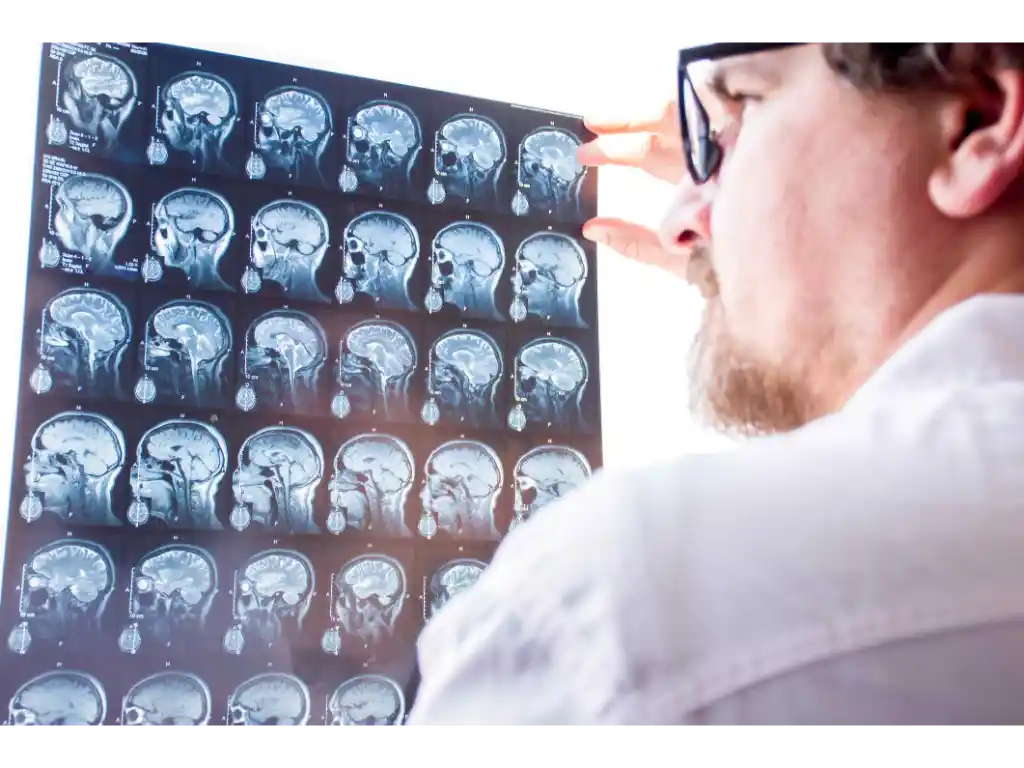
U.S. Army Will Review Discharges For Veterans Who Suffered From TBI & Other Traumas
A class-action lawsuit has forced the U.S. Army to announce it will review thousands of discharge records of veterans who have been impacted by military sexual trauma, traumatic brain injury, post-traumatic stress disorder, and other behavioral health conditions. The review was preliminarily approved on December 28, 2020, as part of a settlement reached in the lawsuit Kennedy v. McCarthy.
According to a statement from the Army:
“Under the agreement, the Army will automatically reconsider certain discharge-status-upgrade decisions made by the Army Discharge Review Board between April 17, 2011, and the effective date of settlement that partially or fully denied relief to Iraq- and Afghanistan-era veterans with less-than-fully-honorable discharges.”
Veterans who were discharged and did not receive an upgrade to honorable from the review board between Oct. 7, 2001, and April 16, 2011, will now be eligible to reapply due to the settlement.
Army combat veterans Steve Kennedy and Alicia Carson filed the lawsuit in April 2017, in the U.S. District Court of Connecticut. According to the complaint, both Kennedy and Carson suffered from PTSD and other health conditions but received general discharges despite their medical issues.
Court documents also revealed that after Kennedy returned home from his deployment to Iraq in 2008, he suffered from PTSD and major depression but was not properly diagnosed or treated by the Army. Although Kennedy’s commander ordered a psychiatric evaluation, he was diagnosed with major depressive disorder but not PTSD, despite his symptoms. Kennedy was eventually discharged from the Army due to his two-week absence.
According to court documents, Carson deployed to Afghanistan in 2010 and served with a Special Forces unit as a gunner. Carson was diagnosed with PTSD and a TBI by doctors at the Defense Department and Department of Veterans Affairs. Although she received a doctor’s note to excuse her from National Guard drills, she was discharged due to her absences.
Both Kennedy and Carson’s appeals to the review board to have their discharges upgraded to honorable were both denied.
As a result of the settlement, veterans who received a discharge from the Army, National Guard, and Reserve that was downgraded from honorable although they had a diagnosis or showed symptoms of military sexual trauma, PTSD, TBI, or other behavioral health conditions, might be eligible for relief.
The Army will also change procedures for how veterans apply for discharge status upgraded in the future and how the review board addresses these cases. Some of the changes include allowing veterans to appear via telephone for review board hearings, more training for review board members, and “updated protocols for decision making in cases involving symptoms or diagnoses of PTSD, TBI, MST or other behavioral health conditions.”
To learn more about the settlement and how it impacts veterans, please visit https://kennedysettlement.com/.
Scarlett Law Group proudly represents veterans suffering from TBI and other injuries related to their service. Please give us a call today at 415-688-2176 or contact us online to schedule a consultation so we can discuss all of your options for recovering compensation.
Ask A Question,
Tell Us Your Situation, &
Get A Free Consultation
Contact Us & We’ll Guide You Through Your
Next Steps!
Required Fields*
Your Information Is Safe With Us.
We respect your privacy. The information you provide will be used to answer your question or to schedule an appointment if requested.
U.S. Army Will Review Discharges For Veterans Who Suffered From TBI & Other Traumas

A class-action lawsuit has forced the U.S. Army to announce it will review thousands of discharge records of veterans who have been impacted by military sexual trauma, traumatic brain injury, post-traumatic stress disorder, and other behavioral health conditions. The review was preliminarily approved on December 28, 2020, as part of a settlement reached in the lawsuit Kennedy v. McCarthy.
According to a statement from the Army:
“Under the agreement, the Army will automatically reconsider certain discharge-status-upgrade decisions made by the Army Discharge Review Board between April 17, 2011, and the effective date of settlement that partially or fully denied relief to Iraq- and Afghanistan-era veterans with less-than-fully-honorable discharges.”
Veterans who were discharged and did not receive an upgrade to honorable from the review board between Oct. 7, 2001, and April 16, 2011, will now be eligible to reapply due to the settlement.
Army combat veterans Steve Kennedy and Alicia Carson filed the lawsuit in April 2017, in the U.S. District Court of Connecticut. According to the complaint, both Kennedy and Carson suffered from PTSD and other health conditions but received general discharges despite their medical issues.
Court documents also revealed that after Kennedy returned home from his deployment to Iraq in 2008, he suffered from PTSD and major depression but was not properly diagnosed or treated by the Army. Although Kennedy’s commander ordered a psychiatric evaluation, he was diagnosed with major depressive disorder but not PTSD, despite his symptoms. Kennedy was eventually discharged from the Army due to his two-week absence.
According to court documents, Carson deployed to Afghanistan in 2010 and served with a Special Forces unit as a gunner. Carson was diagnosed with PTSD and a TBI by doctors at the Defense Department and Department of Veterans Affairs. Although she received a doctor’s note to excuse her from National Guard drills, she was discharged due to her absences.
Both Kennedy and Carson’s appeals to the review board to have their discharges upgraded to honorable were both denied.
As a result of the settlement, veterans who received a discharge from the Army, National Guard, and Reserve that was downgraded from honorable although they had a diagnosis or showed symptoms of military sexual trauma, PTSD, TBI, or other behavioral health conditions, might be eligible for relief.
The Army will also change procedures for how veterans apply for discharge status upgraded in the future and how the review board addresses these cases. Some of the changes include allowing veterans to appear via telephone for review board hearings, more training for review board members, and “updated protocols for decision making in cases involving symptoms or diagnoses of PTSD, TBI, MST or other behavioral health conditions.”
To learn more about the settlement and how it impacts veterans, please visit https://kennedysettlement.com/.
Scarlett Law Group proudly represents veterans suffering from TBI and other injuries related to their service. Please give us a call today at 415-688-2176 or contact us online to schedule a consultation so we can discuss all of your options for recovering compensation.
Post tags
Table of contents
Related Blog Posts

Traumatic Brain Injury May Be a Risk Factor for Schizophrenia
Mental disorders are one of the most common outcomes of traumatic brain injury (TBI). About 1 in 3 individuals who sustain a TBI will develop depression in the following six months, and about half will…

Noise Sensitivity Following Mild Traumatic Brain Injury is a Predictor of Long-Term Post-Concussive Symptoms
The symptoms associated with mild traumatic brain injury (mTBI), also called concussion, typically resolve within a few weeks. One of the most common symptoms is noise sensitivity, which can cause discomfort and distress in loud,…

Is a Neuropsychological Exam Necessary After Suffering a Brain Injury?
After a person suffers a minor or severe brain injury, doctors often use MRI or C.T. scans to help identify lesions and determine if there is any neurocognitive dysfunction. However, even with a C.T. scan…

